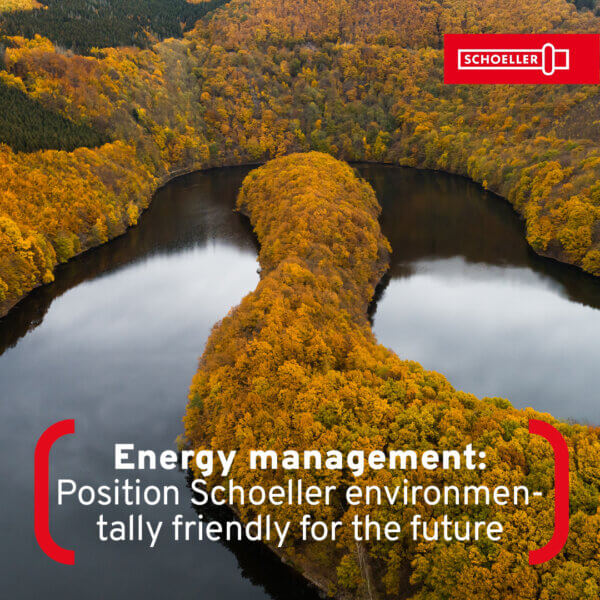As one of the leading manufacturers of welded and redrawn stainless steel tubes on the European market, we produce over 80,000 kilometers of stainless steel tubes every year. The outcome is a yearly demand of over 30 million kWh of electrical energy per year – equivalent to the consumption of around 8,400 single-family homes. Marian Jansen, Energy Manager at Schoeller, is ensuring that the company achieves the transformation to climate neutrality by 2035.
Tasks and responsibilities
Depending on the size and energy consumption of a company, mandatory or voluntary audits are applied to review existing energy concepts. An energy balance makes it possible to identify saving potentials and create forecasts for the consumption of electricity, oil and gas. As an energy manager, Marian Jansen monitors and continuously optimizes energy consumption in production sites and office spaces.
“I see myself as an energy and environmental manager with the aim of not only reducing energy consumption, but also to position Schoeller environmentally friendly for the future,” explains Marian Jansen.
Jansen took a leading role in the transformation concept: Schoeller wants to reduce its CO2 emissions by 40% by 2030 and achieve completely climate-neutral production by 2035. With a mixture of decentralized use of local energy infrastructure and the introduction of in-house generation of electricity and green hydrogen, the project is a role model for the steel industry and the economy in North Rhine-Westphalia.
What kind of training is needed?
The example at Schoeller made it clear that a technical background is a necessity for the job profile. Jansen studied at the RFH – University of Applied Science Cologne with a focus on energy technology, but entry is also possible via other fields of study in which energy consumption issues are firmly integrated.
A completed apprenticeship as an electrician or technician is also a good starting point: In many smaller companies, tasks of an energy manager are integrated into positions like Head of Operations, Technical Manager or Environmental and Health and Safety Representatives. Further training, for example to become a Bafa (Federal Office for Economic Affairs and Export Control) energy consultant or IHK (Chamber of commerce) energy manager, is helpful.
A commercial understanding is also important, as energy purchasing makes a significant contribution to a company’s profitability. Marian Jansen therefore regularly consults with his colleagues from Procurement at Schoeller. He determines future consumption and required energy quantities, his colleagues follow up with contracts with the energy suppliers.
What challenges does an energy manager face?
After eight years, Marian Jansen sees four main challenges:
– An internal view is not enough: successful energy efficiency requires knowledge of the market, law, economics and technology.
– Persuasion: He must convince both management and employees to invest and change processes.
– Financial responsibility: He is responsible for the budget of the efficiency measures and their economic evaluation.
– Visionary creativity: He needs a feel for innovation in order to develop future-oriented solutions for the company.
The conclusion
Energy managers not only need to know procedures and processes, but also technical details, economics and law. Marian Jansen has succeeded in raising awareness of energy efficiency at Schoeller and is also involved at regional level in order to share knowledge and experience with colleagues from other companies. He advises young people who are about to choose a career and have an affinity for the environment and technology to take a close look at the job description of an energy manager. It is clear to him that the profession has a future, because focusing on sustainability saves costs.
Picture: Eifel_Urftstausee_Urfttalsperre_0128 -® Tourismus NRW e.V. (A1)


